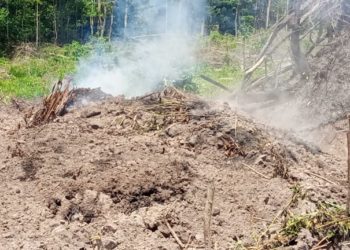Effective January 1st, 2023, Burkina Faso will cease to benefit from the African Growth and Opportunity Act (AGOA), a trade deal that provides exporters on the continent with tariff-free access to the US market.
The US government announced the decision on Wednesday, saying it was due to the West African country’s failure to move rapidly towards democratization.
Burkina Faso has witnessed two separate military coups in the last nine months, beginning in January 2022.
In a letter to the US House of Representative Speaker and Senate President, President Joe Biden on November 1st informed US lawmakers of his intent to terminate the designation of Burkina Faso due to violations of the Act’s requirement.
“I am taking this step because I have determined that the Government of Burkina Faso has not established, or is not making continual progress toward establishing, the protection of the rule of law and of political pluralism, as stated in the eligibility requirements of section 104 of the AGOA,” the letter shared by the White House reads.
President Biden said in the letter that his administration would continue to assess whether Burkina Faso’s government makes “continual progress” toward meeting the AGOA eligibility requirements.
On January 24, Lieutenant Colonel Paul-Henri Sandaogo Damiba overthrew President Roch Marc Christian Kaboré, whom the military accused of incompetence in handling an Islamist insurgency in the northern part of the country. And on September 30th, a group of junior soldiers led by Captain Ibrahim Traoré overthrew Damiba.
The leaders of both coups promised to put an end to the insurgency which is part of a larger Sahelian crisis.
In a separate statement, United States Trade Ambassador Katherine Tai reiterated the need for Burkina Faso to make the “necessary decisions” to meet the terms of the agreement and the return of democracy. She promised to provide a guide to the country to achieve this.
“I will provide Burkina Faso with a clear roadmap to reintegrate into the program and our administration will work with them to make that happen,” Tai said.
Established in 2000, AGOA was designed to facilitate African exports to the United States as part of efforts to support economic development of the continent. Under the deal, eligible countries get duty-free access to the US market for over 1,800 products, in addition to the more than 5,000 products that are eligible for duty-free access under the Generalized System of Preferences programme.
The Bush Administration which established it wanted to use it to promote good governance, hence the eligibility requirements include establishing or making continual progress toward establishing a market-based economy, the rule of law, political pluralism, and the right to due process. African countries must also eliminate barriers to US trade and investment, enact policies to reduce poverty, combat corruption and protect human rights, to remain in the fold.
The list of beneficiary countries is revised every year.
In January, Ethiopia, Guinea and Mali were delisted by the Biden administration over violations of the principles of the programme. While Guinea and Mali were removed for their military coups, Ethiopia was punished for alleged human rights violations perpetrated in its northern Tigray region which has been in war since 2020.
Unlike Guinea and Mali, which were under sanctions by the West African regional bloc, Ecowas, which had called on its international partners to help enforce the sanctions, Burkina Faso is not under any sanction.
But the US’s action could have been influenced by signs of close military ties between the new Burkinabe leaders and Russia, as in Mali.




















